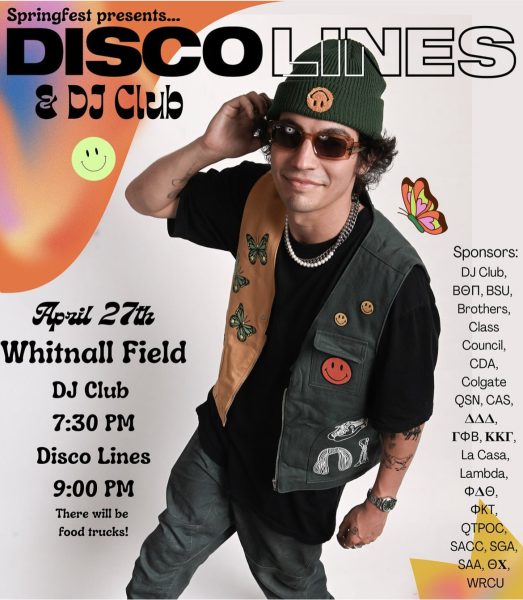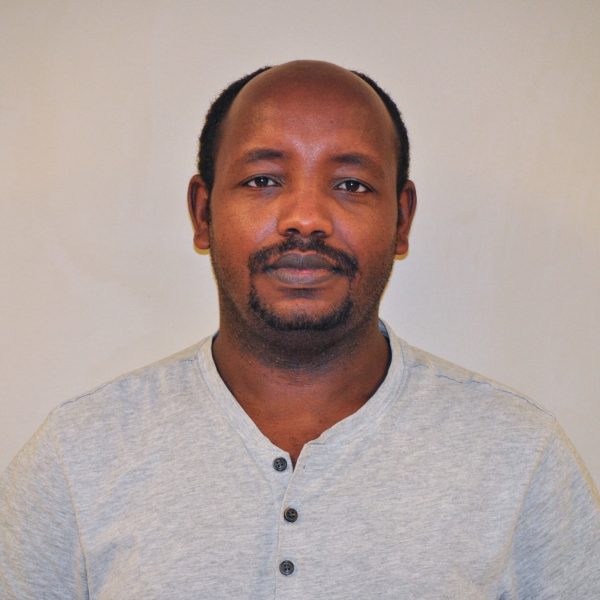Heretics Lunch Explores Influential Education
“I’m unprepared to talk to this many people, so I hope the food’s good,” Assistant Professor of Educational Studies Mark Stern said, modestly (and unnecessarily) offering a disclaimer to his engaging talk about the teachers who changed his life at this past week’s Heretics Lunch.
Stern began the presentation with a basic summary of his background: he was raised in a household that greatly prized education, he has always been nervous about public speaking and throughout his high school career he viewed schooling as a means to an end. It was not until college that Stern began to think about education as a transformative process, and he accredits much of this shift to Sam Richards, a sociology professor at Pennsylvania State University. Stern explained how Richards used his societally-conferred white, male privilege to extract trust from his students, and then used that trust as a vehicle for disrupting the unequal societal norms that had granted him such authority in the first place. Stern also emphasized the impact of Richards occasionally relinquishing this authority, and allowing himself to be vulnerable.
“It was important at that time in my life that someone who looked like me was opening himself up and being vulnerable in front of a class of people,” Stern said. “Given his position as someone who is white and male, there is a certain legitimacy that is granted to him. He was able to understand his social location in a certain way, and he used those things to subvert the normative paradigm of the educational project.”
Stern talked about his own education as a painful process. To demonstrate this point he mentioned a moment in a discussion group, when he unintentionally made a racially insensitive remark and was duly reproached by a black peer. Stern later sent an apology to the student, looking for forgiveness and validation, but was ultimately disappointed.
“It was awesome, in the sense that I was hurt, but in a good way. We’re afraid to feel these things, but you need those negative effects. They’re an important way in which you can get perspective on these issues, and you can’t get that by just doing good,” Stern said.
Over the course of the talk, Stern also explained some of his own pedagogy. Toward this end he discussed the concept of education as trauma, in the sense that he views it as a destabilizing process. To truly learn is to destroy the assumptions you once held, and then reconstruct yourself in a more conscious, intentional way, Stern explained.
“There is something about education to me that should always be violent. It should be unsettling and shatter the way you look at the world,” Stern said. “We always think about learning as additive, putting more money in the head-bank that adds on top ofwhat you once knew, by my idea of education is
radically different. In order to accrue education what first needs to happen is a radical undoing of everything one has already learned.”
At the conclusion of the talk, Stern explained that the end of his formal schooling did not signify the end of his education.
“I feel like what I have been able to do here is continue to have those conversations with you all, and I try to do that very intentionally” Stern said. “The work’s not over, and I very selfishly use the classroom to continue asking these questions, and have you question me in return.”
Heretics Lunch is a weekly brown bag that takes place in the chapel basement every Thursday at 12:15 p.m. This semester’s theme is “The ______ that changed my life.” Next week will feature Adjunct Professor of the Health Sciences and Director of Student Health Services Dr. Merrill Miller giving the talk, “The Oh-So-Many Things That Changed My Life…A Lot Happens When You Live Into Your Sixties.”







